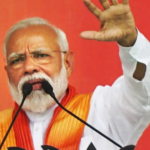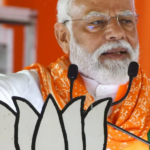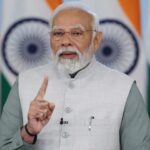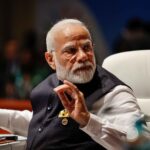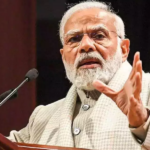The report that was compiled by the High-level Committee (HLC) on One Nation, One Election was delivered to President Droupadi Murmu on Thursday morning (March 14). The exhaustive study, which is comprised of 21 volumes and 18,626 pages, has 11 chapters in addition to Annexures.
In addition to that, the government has released a list of frequently asked questions, often known as FAQs. Based on the materials provided by the government, the following are some of the most important questions and answers to the One Nation, One Election concept.
What is meant by simultaneous elections?
The term “One Nation, One Election” refers to the practice of conducting elections for the Lok Sabha, all state Legislative Assemblies, and urban and rural local bodies (municipalities and panchayats) at the same time. Simultaneous elections take place simultaneously.
At the moment, each of these elections is conducted independently of the others, adhering to the timetables that are determined by the tenure of each particular elected body.
Read More: https://www.aazkanews.in/shoojit-sircars-next-film-with-abhishek-bachchan-opens-next-year/
Is this the first time that simultaneous elections are proposed to be held in India?
In 1957, simultaneous elections were held in seven states in India: Bihar, Bombay, Madras, Mysore, Punjab, Uttar Pradesh, and West Bengal. These elections were held as a result of efforts made by the central government, state governments, and political parties, as well as the Election Commission of India.
Up until the fourth general elections in 1967, simultaneous elections were the generally accepted method of conducting elections. Elections were held at various times throughout the year in a country because consecutive central administrations used constitutional provisions to dismiss state governments before the end of their term. Additionally, coalition governments in the states and the Centre continued to collapse, which resulted in elections being held at other times throughout the year.
The Human Rights Commission (HLC) research states that the country currently has between five and six elections in a single year. If elections for municipalities and panchayats are also included, the total number of elections will grow by a factor of ten.
Read More: https://www.aazkanews.in/sara-ali-khan-discusses-single-mom-life-you-cant-expect-aid/
So what is the need for holding simultaneous elections?
Since 2014, when the present government came to office, and when Prime Minister Narendra Modi placed his weight behind the concept, there have been talks on this matter in numerous public forums. These discussions have been going on for a long time.
The following are some of the reasons that are suggested in the frequently asked questions section of the government’s website:
(i) The government’s exchequer is burdened with additional expenditures as a result of conducting elections frequently. Additionally, when the costs that are expended by political parties are taken into consideration, these amounts would be substantially greater.
(ii) Uncertainty and instability are caused by asynchronous elections, which hinders supply chains, company investments, and economic progress.
Citizens are put in a difficult position as a result of the disruption of government machinery that is caused by asynchronous elections.
When government officials and security forces are used frequently, it has a negative impact on their ability to carry out their jobs with efficiency.
In addition to causing policy paralysis, the frequent implementation of the Model Code of Conduct (MCC) also slows down the rate at which developmental programs are carried out.
(vi) Staggered elections are known to cause “voter fatigue” and provide a substantial obstacle when it comes to ensuring that everyone participates in the election.
Since 2014, when the present government came to office, and when Prime Minister Narendra Modi placed his weight behind the concept, there have been talks on this matter in numerous public forums. These discussions have been going on for a long time.
Who took up the job of studying this issue?
In September of 2023, the Human Rights Commission (HLC) was established with the purpose of investigating the matter. It is commonly referred to as the Kovind panel, after its chairman, the former President Ram Nath Kovind. The panel consisted of Home Minister Amit Shah, former Rajya Sabha Leader of Opposition Ghulam Nabi Azad, former Lok Sabha Secretary General Subhash C Kashyap, former chairman of the 15th Finance Commission N K Singh, Senior Advocate Harish Salve, and former Chief Vigilance Commissioner Sanjay Kothari. All of these individuals were members of the panel. Arjun Ram Meghwal, who is the Minister of Law, was invited to the Committee as a Special Invitee.
There were a total of sixty-five meetings that were held by the Kovind panel at the Jodhpur Officer’s Hostel in New Delhi. It was on March 10 that the last meeting took place. In its deliberations, the committee consulted a variety of publications and studies and conferred with a wide range of interested parties.
The initial step will consist of holding elections for both the Lok Sabha and the State Assemblies at the same time. Furthermore, the constitutional amendment will not be subject to ratification by the states in order to accomplish this.
Elections to the panchayats and municipalities will be synchronized with elections to the Lok Sabha and state Assemblies in the second step. This will ensure that elections for local bodies are held within one hundred days of the elections for the Lok Sabha and state Assemblies. All of these elections will take place simultaneously. At least fifty percent of the states will need to ratify this in order for it to become official.

)



